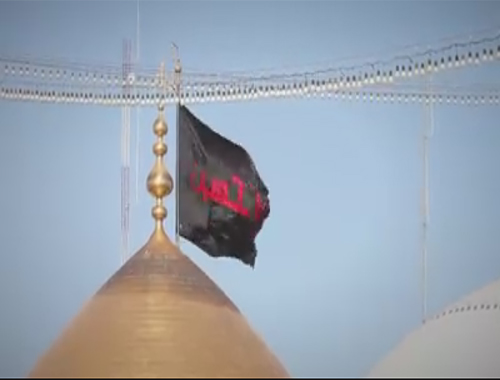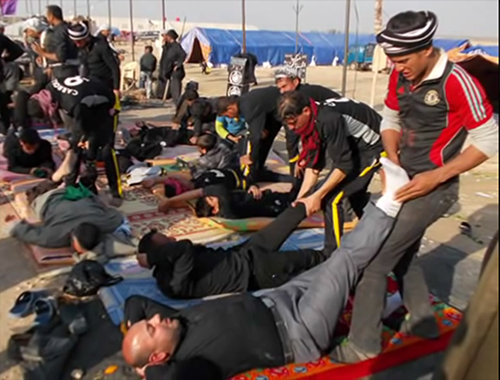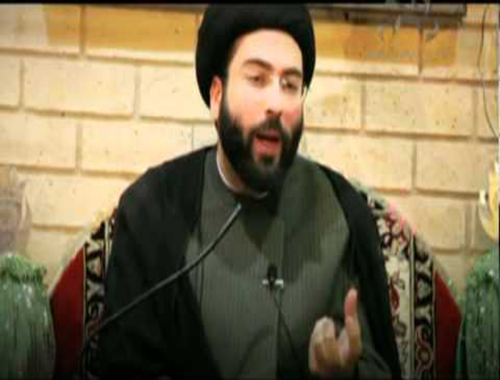Abu Bakr the first Khalifa of the Muslims
- Details
- Hits: 5134
Abu Bakr the first Khalifa of the Muslims
Abu Bakr Was The Son Of Abu Qahafa, and made his living as a merchant in Makkah. He accepted Islam after Khadija, Ali ibn Abi Talib, and Zayd bin Haritha.
It is said that Abu Bakr gave more material support to Muhammad than anyone else. In Makkah, he freed many slaves but there is no evidence that he gave any help to Muhammad. Muhammad, of course, did not want any help from Abu Bakr or from anyone else, but at one time in Makkah, his clan, the Banu Hashim, was in a state of siege for three years, and was in great distress. There is no evidence that Abu Bakr made any attempt to relieve the distress of the beleaguered clan but there is evidence that several unbelievers brought essential supplies to it, and they did so at grave peril to their own lives.
When Muhammad was ready to migrate from Makkah to Yathrib, Abu Bakr offered him a camel. But Muhammad refused to ride the camel without paying its price. First he paid the price of the camel to Abu Bakr, and then he rode it.
Abu Bakr accompanied Muhammad in the journey, and was with him in the cave.
Abu Bakr's daughter, Ayesha, was married to Muhammad, and she was one of his many wives in Medina.
Dr. Montgomery Watt writes in his article on Abu Bakr in the Encyclopedia Britannia, Vol. I, page 54 (1973), as follows:
"Before the Hegira (Mohammed's migration from Mecca to Medina, A.D. 622), he (Abu Bakr) was clearly marked out as second to Mohammed by the latter's betrothal to his young daughter 'A'isha and by Abu Bakr's being Mohammed's companion on the journey to Medina."
According to this article, these then were the two essential qualifications of Abu Bakr to become the "second" to Muhammad, viz. (1) his daughter was married to Muhammad, and (2) he traveled with Muhammad from Makkah to Medina!
Are the heads of states and leaders of nations chosen on the basis of qualifications like these? If they are, then Abu Bakr had no fewer than sixteen competitors for the throne of Arabia. There were at least sixteen other men whose daughters were married to Muhammad at various times; one of them was Abu Sufyan himself, and two of them were Jews.
The second argument in this article is no less "forceful" than the first. According to this argument, Abu Bakr became the head of the state of Medina because once upon a time he traveled with Muhammad from one city to another – a truly remarkable exercise in "scientific logic."
In Makkah, the Prophet had made Abu Bakr the "brother" of Umar bin al-Khattab; in Medina, he made him the "brother" of Kharja bin Zayd.
At the siege of Khyber, Abu Bakr was given the banner, and he led troops to capture the fortress but without success.
In the campaign of Dhat es-Salasil, Muhammad Mustafa sent Abu Bakr with 200 other ranks under the command of Abu Obaida bin al-Jarrah to reinforce the troops of Amr bin Aas. The latter took command of all the troops. Abu Bakr, therefore, served two masters in the same campaign – first Abu Obaida and then Amr bin Aas.
There were many battles and campaigns of Islam but there is no evidence that Abu Bakr ever distinguished himself in any of them.
In the Syrian campaign, the Apostle of God placed Abu Bakr under the command of Usama bin Zayd bin Haritha.
The Apostle never appointed Abu Bakr to any position of authority and responsibility, civil or military. Once he sent him to Makkah as the leader of a group of pilgrims to conduct the rites of Hajj (pilgrimage). But after Abu Bakr's departure, the Apostle sent Ali ibn Abi Talib to promulgate, in Makkah, the ninth chapter of Al-Qur’an al-Majid (Surah Bara'ah or Immunity), the newly revealed message from Heaven. Abu Bakr was not allowed to promulgate it. Ali promulgated it.
The only other distinction of Abu Bakr was that just before the death of the Apostle, he led the public prayers.
When Muhammad was ready to migrate from Makkah to Yathrib, Abu Bakr offered him a camel. But Muhammad refused to ride the camel without paying its price. First he paid the price of the camel to Abu Bakr, and then he rode it.
Abu Bakr accompanied Muhammad in the journey, and was with him in the cave.
Abu Bakr's daughter, Ayesha, was married to Muhammad, and she was one of his many wives in Medina.
Dr. Montgomery Watt writes in his article on Abu Bakr in the Encyclopedia Britannia, Vol. I, page 54 (1973), as follows:
"Before the Hegira (Mohammed's migration from Mecca to Medina, A.D. 622), he (Abu Bakr) was clearly marked out as second to Mohammed by the latter's betrothal to his young daughter 'A'isha and by Abu Bakr's being Mohammed's companion on the journey to Medina."
According to this article, these then were the two essential qualifications of Abu Bakr to become the "second" to Muhammad, viz. (1) his daughter was married to Muhammad, and (2) he traveled with Muhammad from Makkah to Medina!
Are the heads of states and leaders of nations chosen on the basis of qualifications like these? If they are, then Abu Bakr had no fewer than sixteen competitors for the throne of Arabia. There were at least sixteen other men whose daughters were married to Muhammad at various times; one of them was Abu Sufyan himself, and two of them were Jews.
The second argument in this article is no less "forceful" than the first. According to this argument, Abu Bakr became the head of the state of Medina because once upon a time he traveled with Muhammad from one city to another – a truly remarkable exercise in "scientific logic."
In Makkah, the Prophet had made Abu Bakr the "brother" of Umar bin al-Khattab; in Medina, he made him the "brother" of Kharja bin Zayd.
At the siege of Khyber, Abu Bakr was given the banner, and he led troops to capture the fortress but without success.
In the campaign of Dhat es-Salasil, Muhammad Mustafa sent Abu Bakr with 200 other ranks under the command of Abu Obaida bin al-Jarrah to reinforce the troops of Amr bin Aas. The latter took command of all the troops. Abu Bakr, therefore, served two masters in the same campaign – first Abu Obaida and then Amr bin Aas.
There were many battles and campaigns of Islam but there is no evidence that Abu Bakr ever distinguished himself in any of them.
In the Syrian campaign, the Apostle of God placed Abu Bakr under the command of Usama bin Zayd bin Haritha.
The Apostle never appointed Abu Bakr to any position of authority and responsibility, civil or military. Once he sent him to Makkah as the leader of a group of pilgrims to conduct the rites of Hajj (pilgrimage). But after Abu Bakr's departure, the Apostle sent Ali ibn Abi Talib to promulgate, in Makkah, the ninth chapter of Al-Qur’an al-Majid (Surah Bara'ah or Immunity), the newly revealed message from Heaven. Abu Bakr was not allowed to promulgate it. Ali promulgated it.
The only other distinction of Abu Bakr was that just before the death of the Apostle, he led the public prayers.











